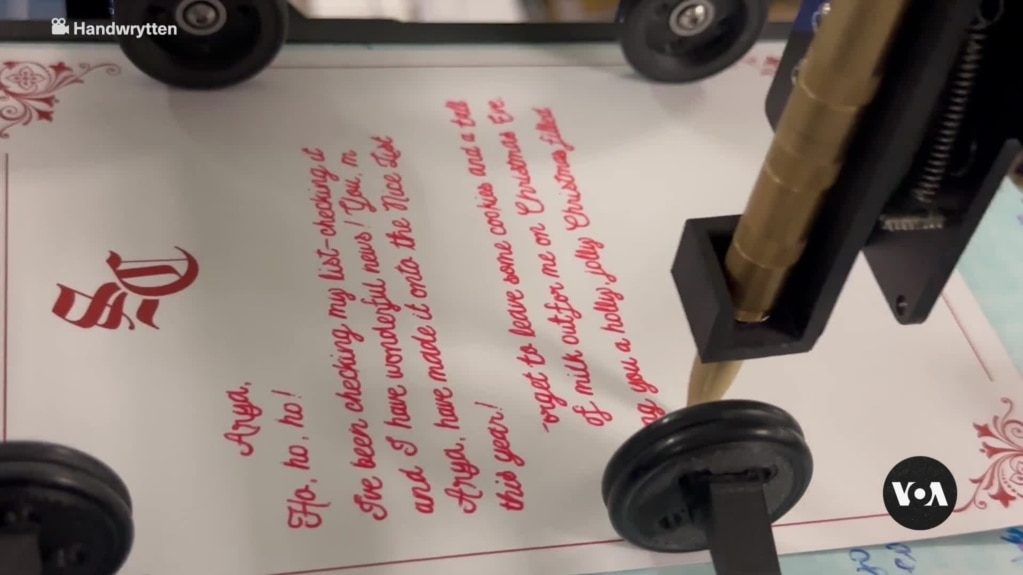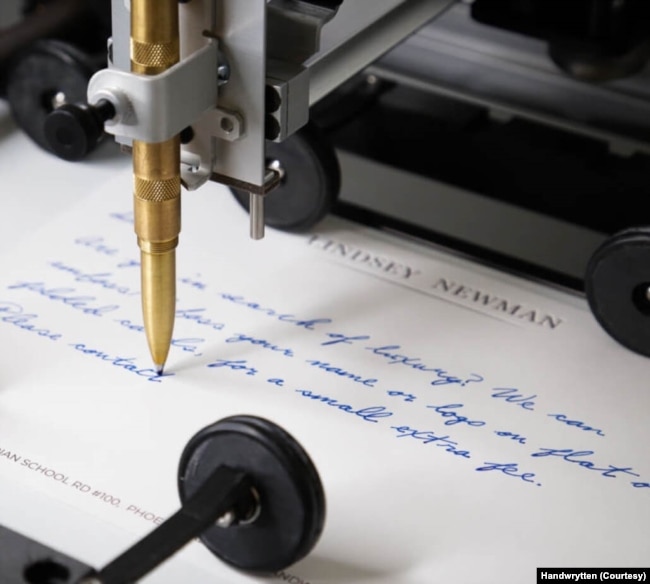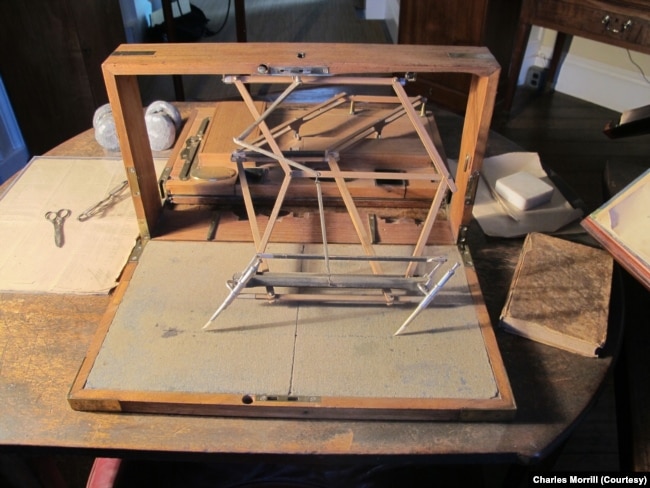AI-operated Robots Write Letters for Humans

Humans have been writing by hand for thousands of years.
Since ancient times, people have used every tool imaginable to share information, do business, and keep records.
But as computers took over the job and the type-written word became more common, something was lost in the process; namely, the charm and personal nature of a hand-written note or letter.
Modern tools
Now, letter writing is making a comeback in the form of artificial intelligence-operated robots. These AI robots can write notes for humans in their own handwriting.
David Wachs is the head and founder of Handwrytten. He said businesses use his company’s robots for handwritten letters and “thank-you” notes to create a strong and personal connection with those who receive them.
Many non-profit organizations also use handwritten letters to keep donations coming. It helps turn one-time givers, or donors, into yearly givers, Wachs explained.
Wachs added, “I think what's old is new again.”

A robotic arm created by the Handwrytten company writes a "personalized" letter for a business that wants to foster better communication with its customers. (Courtesy photo)
A president’s hobby
Automated letter writing is not new. Thomas Jefferson, the third U.S. President, often used a polygraph created by British inventor John Isaac Hawkins. Jefferson considered the device the greatest invention of his time. It let him make copies of his letters to keep for his own records.
Charles Morrill is a historian and professional woodworker who worked as a guide for several years at Monticello, Jefferson’s Virginia home from 1770 until his death in 1826. Morrill said about the polygraph, “Jefferson falls in love with this and it becomes in many ways the hobby of his presidency...He keeps buying machines and exchanges ones that are not quite perfect for the next one that’s a little bit better.”
The president had more than ten of the devices at one point, Morrill added. Using what he considered wonderful technology, historians say Jefferson went on to write almost 20,000 letters in his lifetime.

In 1808 British inventor John Isaac Hawkins presented President Thomas Jefferson with Polygraph machine #57 as the president prepared to leave Washington for good. (Photo courtesy of Charles Morrill)
In a January 15, 1809 letter to Charles Willson Peale, who worked with Hawkins to develop and perfect the machine, Jefferson wrote: “The use of the polygraph has spoiled me for the old copying press the copies of which are hardly ever legible,” adding, “I could not, now therefore, live without the Polygraph.”
Morrill remembered that a visitor once told him, “What is it about you Americans and this new, new thing? Other cultures aren't like this. You Americans are just so absolutely convinced that the next new thing is going to do it; the latest software, the latest computer, the latest phone.”
“And I think this kind of begins with Jefferson,” Morrill added.
From early polygraphs to AI-created letters
Handwriting technology has greatly changed since Jefferson’s time.
Wachs says such technology now includes 3D printing and laser cutting, among others. And if users need help thinking of exactly what to write in their notes, they can choose AI to help them create a more effective message.
Whether via the printing press or the polygraph, a computer or a robot, one thing is clear… humans will use whatever tool they have to express themselves through the printed word.
Words in This Story
type-written - adj. written by using a typewriter or a computer
charm – n. a quality that causes something to be very likeable
appreciate – v. to be thankful for something
automate – v. to run or operate something by using machines instead of people
hobby – n. an activity that a person does for pleasure when not working
spoil – v. to have a bad effect on someone or something
legible – adj. capable of being read
absolutely adv. completely or totally
https://learningenglish.voanews.com/a/ai-operated-robots-write-letters-for-humans-/7545989.html